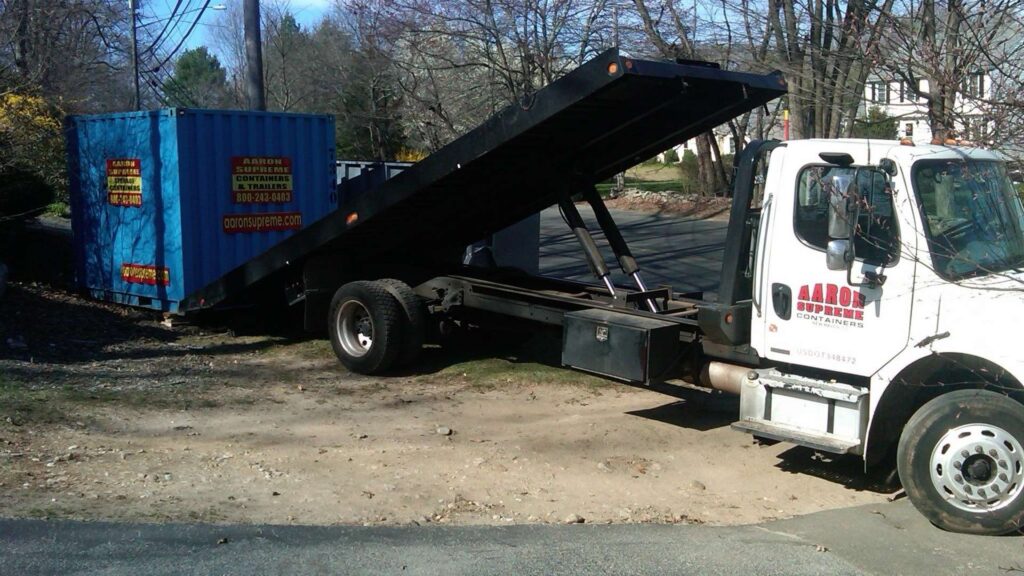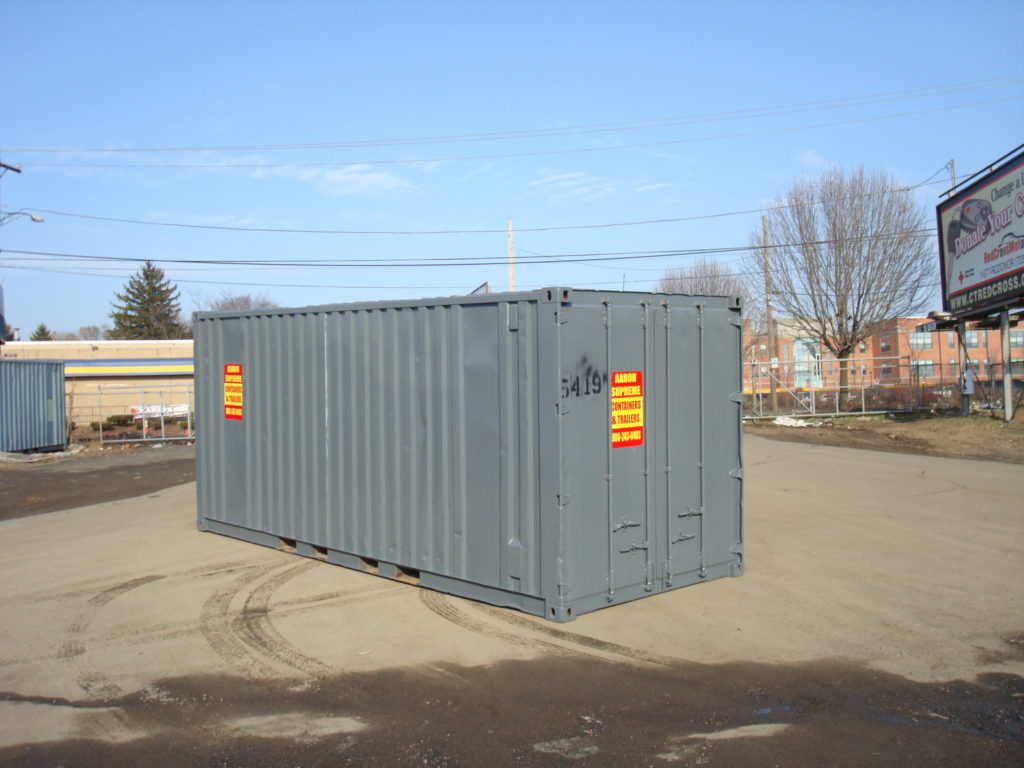
When you order a shipping container, you need a way to get it to your site. A truck driver will deliver your unit wherever you specify, provided there is enough clearance to safely do so. There are many types of shipping container trucks depending on the size, purpose and location of your container.
Shipping container providers either use their own truck drivers or they utilize a third party trucking partner to deliver the containers. Usually, ground delivery option is the standard delivery option, with most trucks being tilt beds, flat deck trailers or roll back trucks.
1. Tilt Bed
Tilt bed trucks are the most common when delivering 20-foot shipping containers. These short bed trucks have a tilt bed that is mounted to the chassis. These vehicles are designed to carry empty shipping containers weighing about 5,000 lbs. The container will be loaded at the yard with a container handler. Upon arrival at the site, the driver will raise the hydraulic bed until the rear corners touch the ground. The container will then slide gently to the ground as the driver moves forward.
2. Flat Deck Trailers/Roll Back Trucks
When getting a 40-foot shipping container delivered, flat deck and roll back trucks are frequently used, towed by either a light-duty truck or heavy-duty tractor. This type of truck can carry empty or full containers. Hot shot deliveries can be made by four-wheel-drive trucks with a shorter wheel base to better access tight spaces.
3. Flat Beds
Flat beds and chassis type trailers are used for bulk purchases or when the delivery site is located a long distance from the container yard. The customer will generally need to have certain equipment on site to help unload the containers. A three-ton forklift can unload a 20-foot container thanks to pockets in the bottom. For 40-foot containers, you will need a crane for unloading.
If you choose to pick up a shipping container from a port, the empty container is delivered via a chassis type trailer. The customer is billed hourly, even though the driver remains on site for live loading. A ramp or loading dock will be necessary to get to the container because it will be elevated several feet from the ground. If you are unable to unload the container all on one day, you can choose to pay a daily rental fee on the chassis trailer.
No matter which type of delivery truck brings your container to the site, the professionals at Aaron Supreme will always be forthright with you about how to be prepared.

Frequently Asked Questions About Shipping Container Trucks
What kind of truck can move a shipping container?
A specialized truck known as a side loader or tilt bed truck is commonly used to transport and deliver shipping containers. These trucks are equipped with cranes or hydraulic systems that can lift and position containers with precision. For larger containers, semi-trucks equipped with chassis specifically designed for containers are also used.
How much does it cost to deliver a container?
The cost to deliver a container varies based on distance, location, container size, and the service provider. Our local deliveries may range between $100 to $500, while longer distances can cost upwards of $1,500 or more. Request a quote from our team before starting work to ensure accurate pricing no matter the scope of your project.
What is a container carrier truck called?
A truck specifically designed to carry shipping containers is commonly referred to as a container chassis or simply chassis. These trucks are designed with locking mechanisms to securely hold containers in place during transportation.
Do shipping containers fit on trucks?
Yes, shipping containers are designed to be easily transported by trucks, trains, and ships. Standard-sized containers, such as the 20ft and 40ft variants, fit perfectly on specialized truck chassis, ensuring secure and efficient transportation.
How do containers get loaded onto trucks?
Containers are typically loaded onto trucks using large cranes at ports or specialized forklifts at depots. Side loader trucks can self-load containers using onboard equipment. The container is securely locked onto the chassis using twist locks, ensuring it remains stable during transit.
What happens to shipping containers after delivery?
After delivery, shipping containers can serve various purposes. Some are returned to ports for reuse in global trade, others are sold or rented out for storage, and many are repurposed into structures like homes, offices, or shops. Their afterlife largely depends on the container’s condition and the demand for such containers in a particular region.
How do shipping containers not fall off trucks?
Shipping containers are securely fastened to truck chassis using twist locks located at the container’s corners. These locking mechanisms ensure the container is anchored firmly to the truck, preventing any movement or toppling during transit, even under challenging road conditions. Proper loading and distribution of weight within the container further enhance stability during transport.
Request a Quote Now
Whether you’re in the construction, school, government, restaurant or retail industry, we have you covered with the right shipping containers for your needs. To learn more about what we offer, what kind of delivery truck to expect, or to request a free quote, call us at 800.243.0403.

